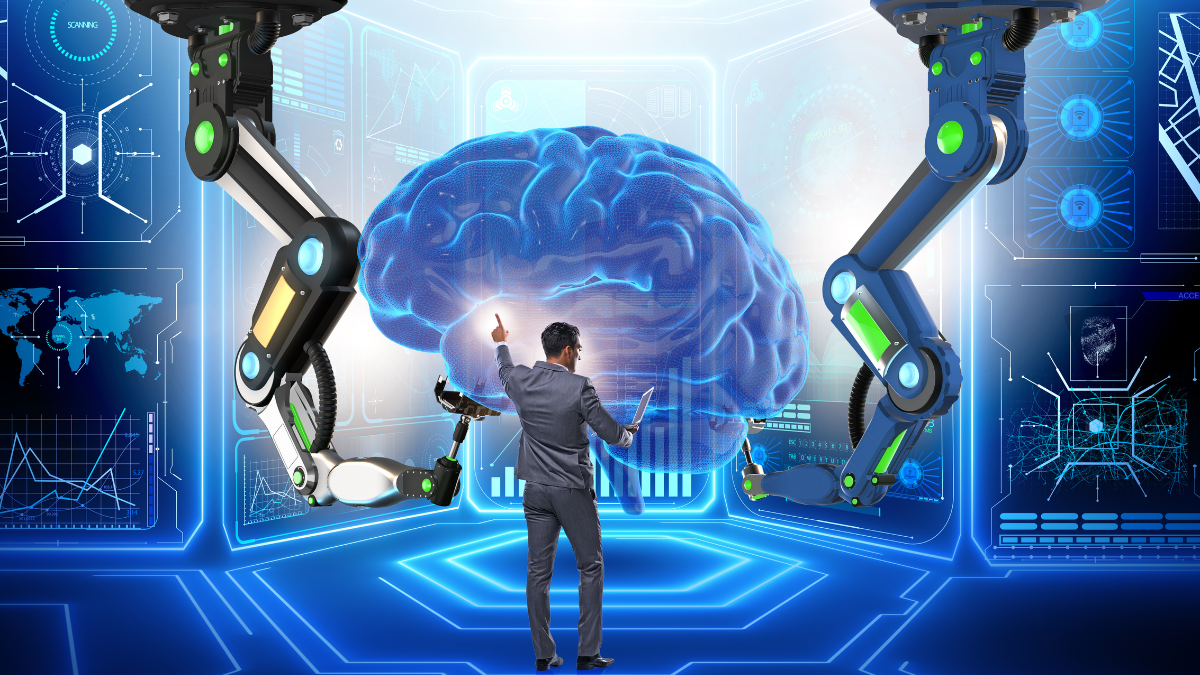Revolutionizing Healthcare: The Unprecedented Role of Artificial Intelligence (AI)
In the ever-evolving landscape of healthcare, the integration of Artificial Intelligence (AI) is ushering in a new era of possibilities. From diagnostics to personalized treatment plans, AI is proving to be a transformative force, promising improved patient outcomes, enhanced efficiency, and a redefined approach to medical practices. This exploration delves into the profound impact of AI in healthcare, unraveling the current state of affairs and the promising future it paints for the medical field.
AI in Diagnostics:
One of the primary areas where AI is making significant strides is in diagnostics. Machine learning algorithms, trained on vast datasets of medical images, are demonstrating capabilities that rival, and in some cases surpass, human accuracy. For instance, AI-driven systems are being employed to analyze medical images like X-rays, MRIs, and CT scans, providing rapid and accurate detection of anomalies.
In the realm of pathology, AI is proving to be a valuable ally. Pathologists often face an overwhelming volume of data when examining tissue samples. AI-powered tools can assist in identifying patterns and anomalies, leading to quicker and more precise diagnoses. This not only expedites the diagnostic process but also reduces the likelihood of human error.
Personalized Treatment Plans:
One of the promises of AI in healthcare lies in its ability to usher in an era of personalized medicine. Traditional treatment plans are often generalized, designed to suit a broad spectrum of patients. However, the uniqueness of each individual’s genetic makeup and health history calls for a more tailored approach.
AI algorithms can analyze vast datasets, including genetic information, patient history, and treatment outcomes, to identify patterns and correlations. This enables healthcare providers to create personalized treatment plans that consider the specific genetic predispositions and responses of each patient. The result is a more targeted and effective approach to medical interventions, minimizing adverse effects and optimizing outcomes.
Predictive Analytics and Early Intervention:
The power of AI extends beyond the diagnosis and treatment phases to predictive analytics. Machine learning algorithms can analyze patient data to identify patterns that may indicate the risk of developing certain conditions. This capability allows for early intervention and preventive measures, potentially averting the progression of diseases and reducing the burden on healthcare systems.
For example, in the case of chronic conditions like diabetes, AI can analyze patient data, including lifestyle factors, genetic predispositions, and historical health information, to predict the likelihood of developing complications. This proactive approach enables healthcare professionals to intervene early, providing targeted interventions to manage or prevent the progression of the condition.
Streamlining Administrative Processes:
Beyond the clinical aspects, AI is proving to be a valuable asset in streamlining administrative processes within healthcare organizations. From appointment scheduling to billing and coding, AI-powered systems can automate repetitive tasks, reducing the administrative burden on healthcare professionals and improving overall operational efficiency.
Natural Language Processing (NLP) is another facet of AI that is revolutionizing administrative processes. NLP algorithms can analyze and interpret unstructured data from sources like patient records and clinical notes, facilitating more efficient data management and retrieval. This not only saves time but also enhances the accuracy of information available to healthcare providers.
Virtual Health Assistants and Telemedicine:
The integration of AI in healthcare extends to virtual health assistants and telemedicine, providing patients with unprecedented access to medical information and services. Virtual health assistants, powered by AI, can interact with patients, answering queries, providing medication reminders, and offering valuable health-related information. These AI-driven interfaces enhance patient engagement and empower individuals to take an active role in managing their health.
Telemedicine platforms, amplified by AI, enable remote consultations and monitoring. AI algorithms can analyze real-time data from wearable devices, providing healthcare providers with valuable insights into a patient’s health status. This not only facilitates remote healthcare delivery but also allows for continuous monitoring and timely interventions.
Challenges and Ethical Considerations:
While the potential benefits of AI in healthcare are immense, the integration of such technologies is not without challenges and ethical considerations. The reliance on algorithms for critical medical decisions raises questions about transparency, accountability, and the potential biases inherent in the datasets used to train these systems.
Ensuring the privacy and security of patient data is a paramount concern. The interconnected nature of healthcare systems, coupled with the sensitive nature of medical information, requires robust measures to safeguard against breaches and unauthorized access.
Ethical considerations also come into play when implementing AI in decision-making processes. The “black box” nature of some AI algorithms, where the decision-making process is not readily interpretable, poses challenges in ensuring that decisions align with ethical standards and medical best practices.
The Future of AI in Healthcare:
Looking ahead, the future of AI in healthcare holds immense promise. As technology continues to advance, we can anticipate even more sophisticated AI algorithms, improved interoperability of healthcare systems, and greater collaboration between human healthcare professionals and AI systems.
The concept of “explainable AI” is gaining traction, emphasizing the importance of developing algorithms that not only provide accurate predictions but also offer transparent explanations for their decisions. This is crucial for building trust among healthcare professionals, patients, and regulatory bodies.
Moreover, the continued refinement of AI-powered robotic surgery, precision medicine, and the exploration of AI in drug discovery are areas that hold tremendous potential for shaping the future landscape of healthcare.
Conclusion
In conclusion, the integration of AI into healthcare is not merely a technological advancement; it represents a paradigm shift in the way we approach medical diagnostics, treatment, and patient care. While challenges exist, the potential benefits, including improved diagnostic accuracy, personalized treatment plans, and enhanced operational efficiency, position AI as a cornerstone in the evolution of healthcare. As we navigate this transformative journey, it’s essential to balance the embrace of innovation with a steadfast commitment to ethical considerations, privacy, and the overarching goal of advancing the well-being of individuals and communities through the power of artificial intelligence in healthcare.


